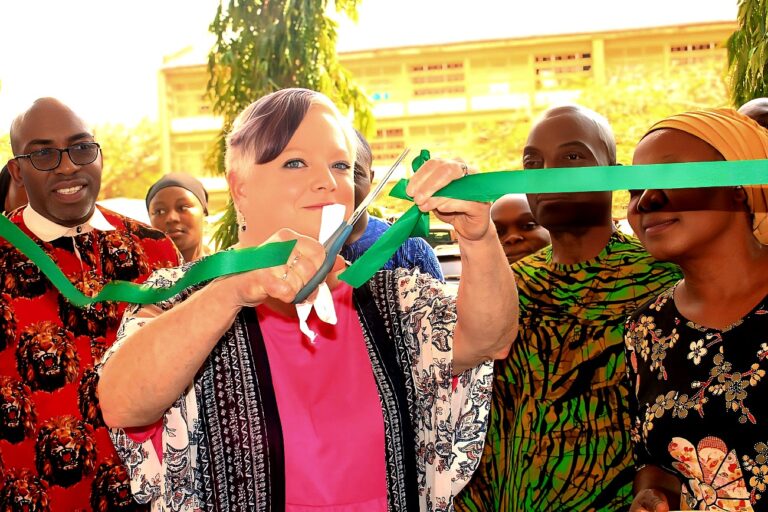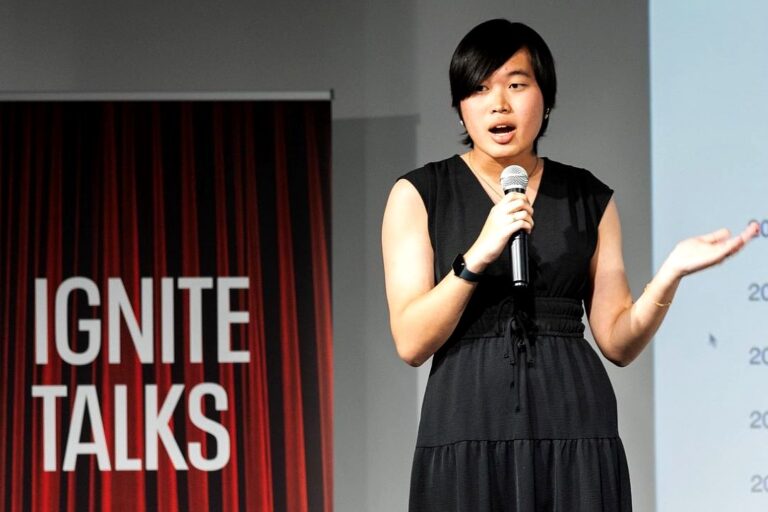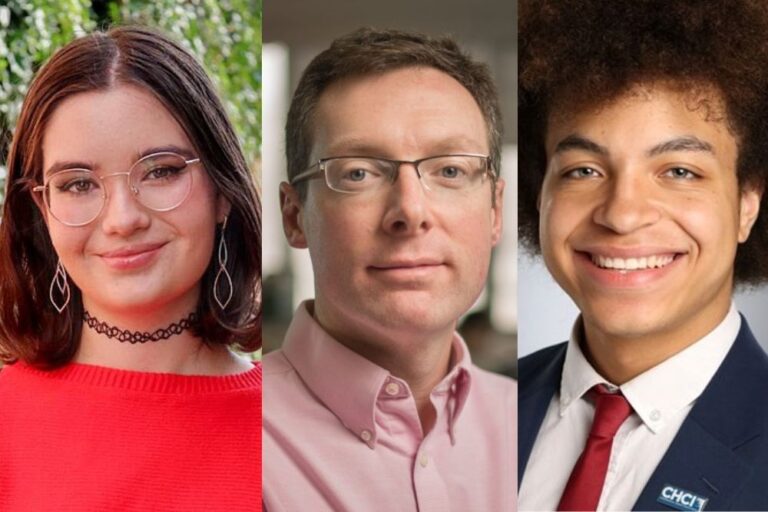The First-Year Writing (FYW) Program at MSU again offered undergraduates a unique experience and the chance to demonstrate the research and writing skills they acquired in their fall 2021 writing classes in a formal conference setting. The fall 2021 First-Year Writing Symposium, which took place December 3, was an exciting opportunity for students to present the work they did in their classes and reflect on what they learned.
This year, the FYW Symposium followed a hybrid model, using Flipgrid software, which allowed students to show off projects in a variety of modalities. Presentations included single-authored and collaboratively composed interviews, videos, games, and even diorama boxes, all based on research and writing processes students developed in their FYW classes.

Josh Behen, a Business-preference major who created a golf-themed model about the pressure to perform well titled “The Hole-in-One Effect,” says the biggest thing he learned is that writing does not have to be perfect the first time.
Being encouraged to let ideas flow during the drafting stage and edit them later allows students to write more freely at first, which results in better finished products. Behen continued: “You can make mistakes in your writing [and] fix them down the road.” The projects on display at the FYW Symposium demonstrated how flexible and creative the writing process is.
Ben Bania, also a Business-preference major, who presented “Tiny Museum,” a mirrored box containing short written excerpts about self-reflection, also came to see writing as an imperfect process throughout the semester: “In the beginning stages of your paper, it’s just smart to get everything you want out … and then, if something needs to [be] changed, it’s all there.”
He went on to describe what else he learned in his FYW class: “It helped me gain more knowledge on resources [and] how I can research,” adding that getting to know the MSU Libraries was especially helpful.

Overall, students agreed that their FYW classes and the symposium helped them strengthen their skills as undergraduate researchers, including finding and citing information from a variety of sources to strengthen their writing. Vy Nguyen, also a Business-preference major and creator of a diorama of a Secretary of State office called “The Most Dreadful Place,” said that her experience showed her different aspects of doing research at MSU, adding that the library offers many more resources than she had originally expected.
She also said, “It’s harder to turn writing into an actual model… I feel like it’s totally different from my paper.” This reflection reveals the expanse of writing captured in FYW classes, and shows how the FYW program taught her to become proud of her work despite it not turning out as planned, another sentiment shared by many of the FYW students at the symposium.
For some students, the flexibility and open-mindedness they learned in the FYW Program translated to better cultural awareness. Ellie Haase (exploratory preference), Liam McEnroe (Business-preference), and Leslie Flores-Martinez (Advertising Creative), who gave a digital presentation titled “Gender Roles” at the symposium, reflected on this.
“[Dr. Cheryl Caesar] focused all of our writing on cultural and racial [topics], so it was interesting to learn about all of those things as well,” said Haase. Flores-Martinez agreed, adding that the class “helped with learning about different experiences… like all these different cultures and how [people] see the cultures that they’re in.”

Learning about other cultures and improving their writing gives students a chance to examine their own past experiences. In addition to external research, Haase said that using “personal experiences [with] stereotypes” was key in creating her groups’ presentation, which centered on the harm that strictly imposed gender roles can cause.
In the end, the importance of drafting and idea development, editing processes, conducting research, and experimenting with modalities were prominent themes at the symposium. Developing such skills prepares students for college- and career-level writing, deepens their knowledge of diverse experiences, and better prepares them for success in a variety of fields.
Written by Kara MacKenzie
Kara MacKenzie (she/her) is a sophomore at Michigan State University majoring in Professional and Public Writing and Women’s and Gender Studies. She is the website and communications intern for WRAC, where she helps to create and implement engaging content campaigns that draw attention to people in WRAC and the amazing work they are doing. She is especially passionate about the intersections between rhetoric and social justice, and hopes to one day use her writing skills to benefit an organization that works toward positive social change.


